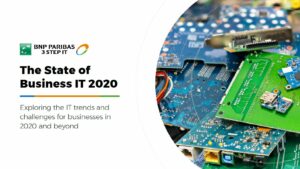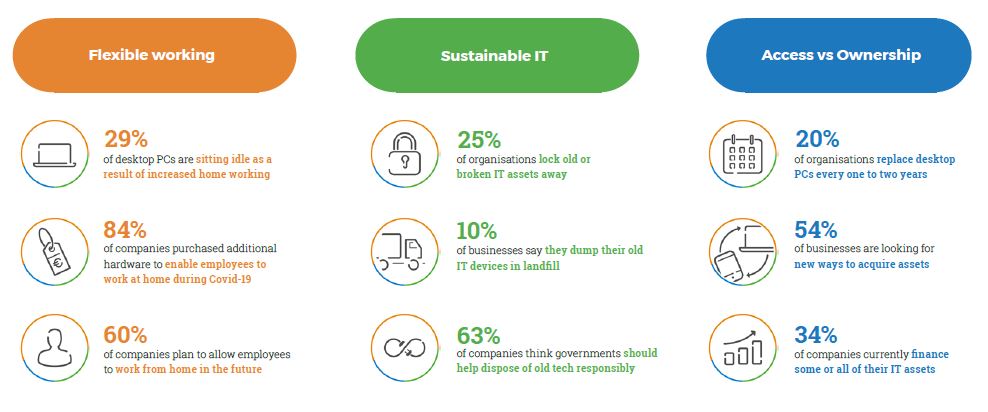The Guardian recently published a thought-provoking article on the Circular Economy. One of the kye takeaways was that today our economy is inherently linear and this is ‘undermining the very foundation of our future’. Circular Economy will address this, whereby less wastage will reduce the damage on the planet.
But the Circular Economy has so much more to offer, it will have a very real and very significant impact on our economy. The Guardian article suggests an ‘estimated net savings of £523bn to European companies.’
At 3 Step IT we have been focused on the Circular Economy, recognising both the environmental and economic benefits. We have been making a series of small differences for over 20 years, through our circular approach to purchasing IT equipment. We find new homes for IT equipment and transform the old way of make-take-dispose to make-take-reuse
And when you consider manufacturing just one computer and monitor it takes roughly 530lb (240kg) 1.5 tonnes of fossil fuel, 48lb (21.8kg) of chemicals, and 1.5 tonnes of water. Yet we discard 20 – 50 million metric tonnes of e-waste every year!
Since our humble beginnings, we have refurbished and reused over 5 million devices. We have delivered over £125 million in savings for our customers and reduced the impact on the environment by doubling the lifecycle of refurbished equipment.
The actions of us as a single company, is like a butterfly flapping its wings. If we all collaborate and play our role in the Circular Economy, the changes we make today, will make a massive difference to tomorrow.
If you have any old kit gathering dust, why not get in touch. We can take your old kit and unlock the cash value in it, which you can invest back into your business. And you can make your first step towards contributing towards a Circular Economy.


